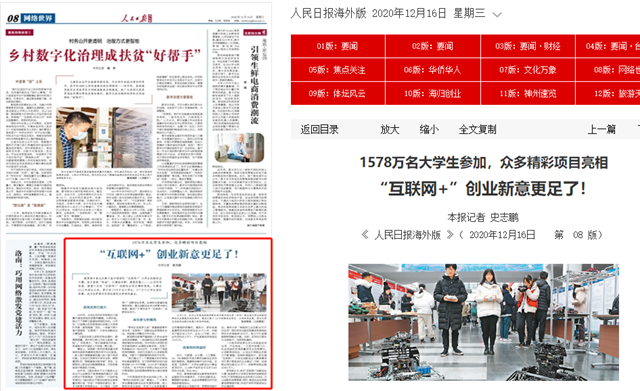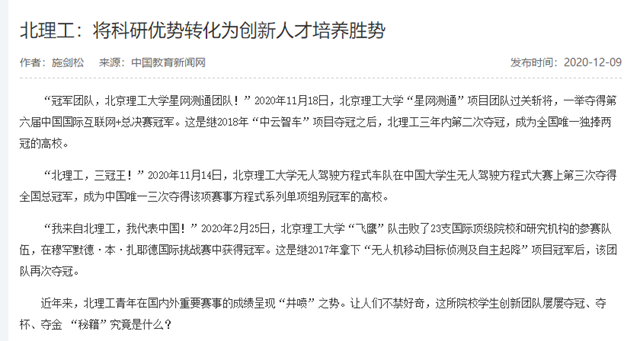【中国国际电视台】CGTN报道腾讯体育官网:在天舟一号货运飞船上进行权威生命科学实验
发布日期:2017-04-27 供稿:中国国际电视台 编辑:杨晶 审核:王征 阅读次数:
原文标题:Cutting-edge bioscience experiments carried out on Tianzhou-1

In addition to docking and refueling missions, there are also many key space experiments being carried out on China's first cargo spacecraft, Tianzhou-1. One of these cutting-edge experiments focuses on bioscience in space.

Scientists from Beijing Institute of Technology loaded cells in Tianzhou-1 for experiment. / CGTN Phot0
A group of Chinese scientists from the Beijing Institute of Technology have loaded huma?n cells into a highly integrated and automated device on Tianzhou-1, with this question in mind: How will the cells be cultured and interact with its immune system in space?

This is exactly the same device as that inside orbiting Tianzhou-1. / CGTN Photo
In order to get a precise and direct comparison of the results, another device is also in operation in a lab, here on Earth.
Through comparison with experiment results on the ground, Chinese scientists can try to find out more on how the nervous and the immune system interact in space's microgravity environment.

Associate Professor Li Xiaoqiong says this bioscience space experiment will last about 2 weeks. / CGTN Photo
Li Xiaoqiong, associate professor from Beijing Institute of Technology, told CGTN that space will provide a special environment for the cells, one is microgravity, the other is radiation.
This time, they have put the cells on this micro-fluidic chip, and all the micro experiments will be carried out on it with the help of remote control. Li said the device is now in stable operation.

The space experiment's results are expected to offer key data on improving astronauts' immune systems. / CGTN Photo

Professor Deng Yulin and his colleagues successfully developed the experiment's high-tech device. / CGTN Photo
The bioscience experiment is pivotal as it focuses on the life support system for astronauts living in space. This device is regarded as one of the world's most advanced in the space bioscience sector.
Professor Deng Yulin told CGTN that through this experiment, they can find out how the astronauts' nervous and immune systems interact in space, and what kind of impact and potential damage could be made to their bodies. Therefore, they could take related measures to prevent and cure diseases as early as possible.

Experts say the results could be more far-reaching, to also help people on earth by improving immunity in the long run. / CGTN Photo
Scientists will have the final results soon, and spend the next few months analyzing their findings.
There's more on the cards though, with scientists from Switzerland and Germany keen to cooperate with the Chinese team on more bioscience space experiments.

分享到:


